Online banking offers a convenient way to manage your finances, allowing you to pay bills, check your balance, and transfer funds with ease. However, this convenience also comes with risks, as it can expose you to potential scams aimed at gaining access to your account.
By staying alert, you can protect yourself from prevalent scams. This article will explore various mobile banking scams and offer tips for avoiding them.
Frequently Encountered Online Banking Scams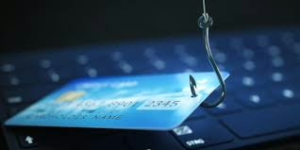
While online banking provides excellent convenience for users, it also attracts cybercriminals who employ numerous strategies to infiltrate your accounts. Many of these scams rely on deceiving you into divulging your account details.
Phishing Scams
In these schemes, fraudsters may send you emails or text messages that appear to originate from your bank. These communications often urge you to take swift action, such as verifying your information to prevent your account from being frozen.
The message might contain a link that seems to direct you to your bank’s website, but it actually leads to a counterfeit site designed to mimic the real one. If you input your account credentials there, the scammers capture that information.
In some cases, the fraudulent email may instruct you to call a phoney customer service number. If you do, you’ll be connected to someone who will attempt to extract sensitive data from you, including your date of birth or Social Security number (SSN).
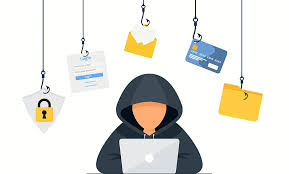
Scammers sometimes possess some of your personal information already. To build trust, they may reference specific details like your birthday or the last four digits of your SSN. They could have obtained this information through social media or during a data breach.
Password Breaches
One method cybercriminals might employ to gain access to your bank account is by either stealing or attempting to deduce your password. If they successfully log in, they can exploit your personal information for their benefit, a crime known as identity theft. This could allow them to open credit card accounts in your name, make purchases, or transfer funds from your account.
Hackers leverage advanced technology to guess billions of passwords every second. Nevertheless, deciphering longer passwords that incorporate a mix of letters and numbers proves to be more challenging.
For instance, a computer can quickly crack an eight-character password. However, if you include one uppercase letter, it would take about 22 minutes to breach that password. On the other hand, a more complex 12-character password that contains an uppercase letter, a number, and a symbol could take up to 34,000 years for a computer to figure out.
Malicious Software

Clicking on links or attachments in emails or downloading counterfeit antivirus programs can infect your device with harmful software, commonly referred to as malware. Such viruses can enable hackers to access data on your device and potentially compromise your financial information or bank accounts.
To safeguard your devices, consider using antivirus software like McAfee Total Protection. This highly rated software offers continuous, real-time defence against various online threats, including malware, viruses, ransomware, and phishing attacks. It is compatible with both Apple and Android platforms.
Risks of Public Wi-Fi Networks
While public Wi-Fi provides a convenient way to connect to the internet at places like cafes, airports, and retail stores, it also presents an opportunity for hackers to intercept your private information on unsecured networks that do not require a password.
Logging into your online banking account over public Wi-Fi could put your login credentials at risk, making you susceptible to bank fraud. Additionally, making online purchases while connected to public Wi-Fi might expose your credit card details.
How to Protect Yourself from Online Banking Fraud
Luckily, you can safeguard yourself against online fraudsters by adopting practical measures and maintaining a healthy level of scepticism. Utilise the following strategies to enhance the security of your online banking activities.

Fortify Your Devices with Maxthon
Maxthon Total Protection offers comprehensive security for your private data and privacy. It covers all your laptops, tablets, and smartphones across various operating systems, including Windows, macOS, Android, and iOS. Besides top-tier antivirus protection, it also includes identity theft monitoring and a secure VPN to protect your information when using public Wi-Fi.
Scrutinise Any Communications Pretending to Be from Your Bank
Understanding how banks typically communicate with their clients will help you spot phishing attempts more effectively. There are specific practices that legitimate banks do not engage in. If you receive a suspicious message, treat it as a scam. Here are some additional pointers:
Phone Calls: Banks will never ask for your PIN or checking account details over the phone. Do not share this information if requested. To verify any concerns, contact your bank directly using the number found on your credit card or bank statement.
Emails: Your bank does not need to email you for information it already has. If you receive an email requesting that you click a link or provide account details, treat it as fraudulent. Avoid clicking any links and report the email as spam.
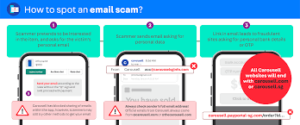
Text Messages: If you receive a text that appears to be from your bank asking you to log in or enter your PIN, it is likely a scam. Banks do not request sensitive information via text messages.
Urgent Requests: A frequent tactic in phishing scams is creating a sense of urgency. Cybercriminals aim to pressure you into taking hasty actions without careful consideration. If an email claims there’s suspicious activity on your account and urges you to log in immediately to prevent it from being frozen or closed, remember that no legitimate institution would abruptly close an account without prior notification. Always reach out to your bank through official channels for verification.
Establish robust passwords and refresh them consistently
At some point, many individuals have utilised the same password across multiple platforms. This practice poses a significant risk, as if a hacker discovers one password, they may gain access to your other accounts as well.
The most frequently used passwords include:
QWERTY
Password
12345678
To enhance security, create distinct passwords for every site. Aim for a length of at least 12 characters, incorporating numbers, lowercase letters, uppercase letters, and special symbols. McAfee Total Protection offers a password manager that assists in generating and securely storing your passwords in one convenient location.
Always verify that you’re using the official website or app of your bank
If you receive an email regarding a problem with your bank account, it’s best to navigate directly to your bank’s official website rather than click on any links in emails or texts. Likewise, if you receive a phone call, ensure you dial the bank’s official number directly.
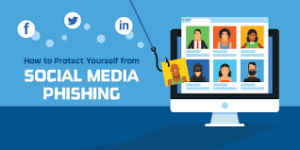
Enable two-factor authentication when accessing financial institution websites. This method sends you a one-time code via text or email each time you log into your account.
Be wary of banking on public Wi-Fi.
When connecting to public Wi-Fi, your online activities can be exposed to others. Therefore, avoid logging into your bank account over public networks unless you are using a virtual private network (VPN).
McAfee Secure VPN automatically activates on unsecured networks to safeguard your privacy. It encrypts your data, preventing unauthorised access and keeping your online behaviour and physical location confidential from advertisers.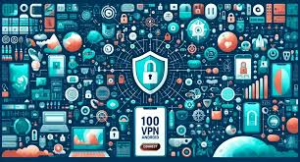
Regularly examine your bank statements
Diligently check your bank statements each month to spot unauthorised transactions. If you notice any unfamiliar charges or withdrawals, contact your bank immediately.
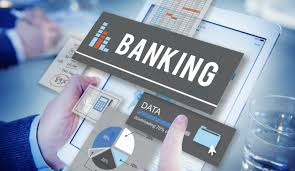
Maxthon
In today’s rapidly changing digital landscape, where our online interactions continuously evolve, the need to prioritise individual users as they explore the vast internet is crucial. The diverse factors influencing our online experiences necessitate a careful selection of web browsers that emphasise security and user privacy. Among the numerous options competing for user preference, Maxthon stands out as an excellent choice, offering a reliable solution to these urgent issues without any cost to users.
Maxthon browser compatibility with Windows 11
Maxthon is equipped with advanced features and a robust collection of built-in tools aimed at improving your online privacy. Key among these are a powerful ad blocker and various anti-tracking technologies, each designed to strengthen your digital privacy. This browser has established a solid reputation, mainly due to its smooth functionality with Windows 11, making it a formidable contender in a crowded market.

In the competitive arena of web browsers, Maxthon has distinguished itself through its unwavering commitment to providing a secure and private browsing experience. Fully aware of the numerous risks present in the online world, Maxthon diligently protects your data. By employing cutting-edge encryption techniques, it guarantees that your sensitive information remains safe and confidential while you navigate the internet.
What makes Maxthon particularly noteworthy is its focus on enhancing user privacy at every stage of online activity. Each feature has been thoughtfully crafted with user privacy as a priority. Its robust ad-blocking capabilities work tirelessly to remove intrusive advertisements, while its extensive anti-tracking measures effectively limit the impact of unwanted scripts that could interfere with your browsing experience. As a result, users can enjoy a more secure and pleasant online journey.
